News
Customize list
-
ViroiDoc MSCA DN Open Call for PhD candidates in Italy
The international call for PhD candidates is part of the activities of the ViroiDoc project - Advanced Research on Viroid Pathogenesis and Control for Sustainable Agriculture, coordinated by the University of Ljubljana with the support of the European Union's Horizon Europe MSCA Doctoral Network. The deadline for applications is 5 September 2025.
-
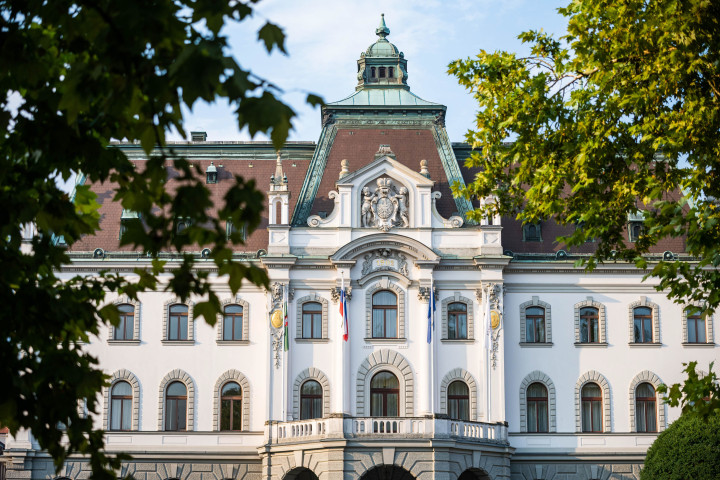
UL and MOL consolidating cooperation for a sustainable, creative and inclusive future of the city
The University of Ljubljana (UL) and the City of Ljubljana (MOL) continue to actively implement the long-term cooperation agreement signed in January 2023, grounded in a shared vision of Ljubljana as a city of knowledge, creativity and sustainable development. As part of the 2025 action plan, collaboration between the two institutions is deepening further through a range of joint initiatives that connect the academic community, municipal services and the residents of Ljubljana.
-

Government provides funding for the new UL FFA building and the UL MF Vrazov Trg campus with new source of funding
At its session on 10 July 2025, the Government of the Republic of Slovenia approved the inclusion of the new building for the Faculty of Pharmacy of the University of Ljubljana (UL FFA) in the Development Programmes Plan 2025–2028. The project is valued at EUR 133 million. At the same time, the Government also approved a new source of funding, amounting to EUR 17.6 million, for the Vrazov Trg campus of the University of Ljubljana’s Faculty of Medicine (UL MF).
-
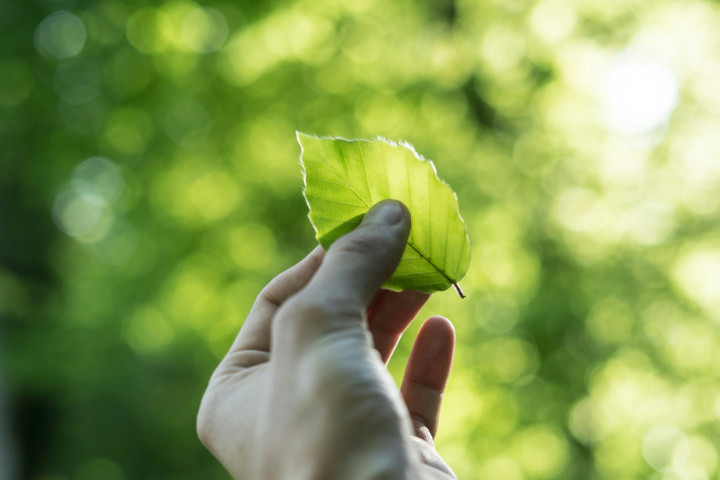
UL Biotechnical Faculty establishes two centres for science and sustainable development
On 19 May 2025, the Biotechnical Faculty at the University of Ljubljana (UL BF) established two new specialised units: the One Health – Environment Centre and the Centre for Circular Bioeconomy. Their purpose is to strategically integrate knowledge and address key societal challenges.
-
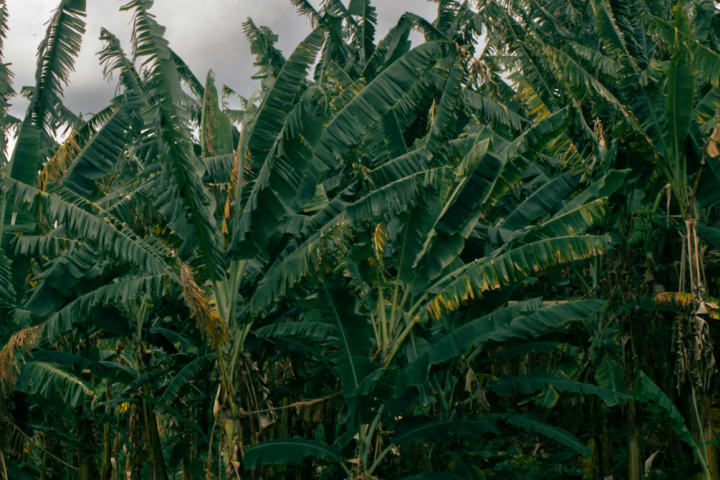
Climate Change Threatens the Future of Bananas
The cultivation of the world’s most popular fruit – bananas – is under threat from climate change, particularly due to tropical cyclones. Plantations in Southeast Asia and the Caribbean will be most affected, where production will face significantly greater risks – in the Caribbean, almost 50% more. This is revealed by an international study that included participation from the Biotechnical Faculty of the University of Ljubljana.
-

University of Ljubljana Senate confirms new Vice-Rector for the 2025–2029 term
At its regular session on 17 June 2025, the Senate of the University of Ljubljana confirmed Prof. Dr Janez Vogrinc, from the Faculty of Education (UL PEF), as Vice-Rector of the University of Ljubljana for the 2025–2029 term. Prof. Dr Vogrinc will assume office on 1 October 2025, with responsibilities primarily focused on the University’s quality system, sustainability and academic activities.
-

Statement by the management of the University of Ljubljana on participation in European projects and remarks by the UN Special Rapporteur
The University of Ljubljana is following the situation in Gaza and the suffering of the population with great concern. As an academic institution founded on respect for human rights, we are firmly committed to strict adherence to international law. We express our deep sympathy for all those affected by the violence and the ongoing humanitarian crisis.
-
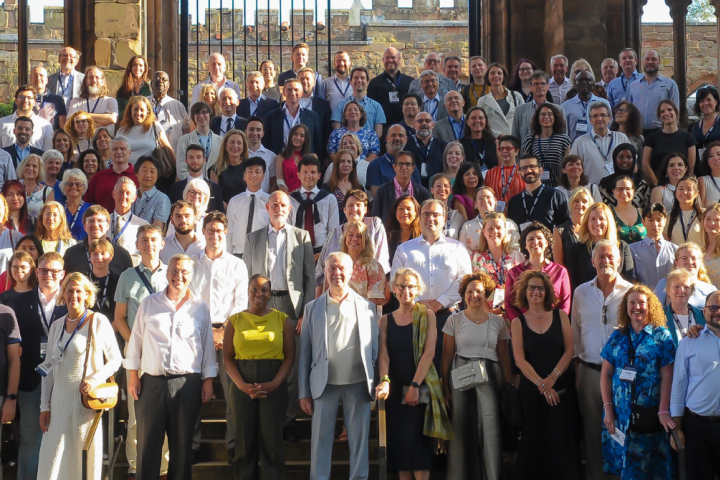
EUTOPIA Week at the University of Warwick: Celebrating the global university community
The EUTOPIA partner universities convened at the University of Warwick under the guiding theme “Creating Global Connections”. The event aimed to foster closer collaboration, interdisciplinary dialogue and reflection on how to create cross-border networking opportunities for students, academics and staff across EUTOPIA universities
-
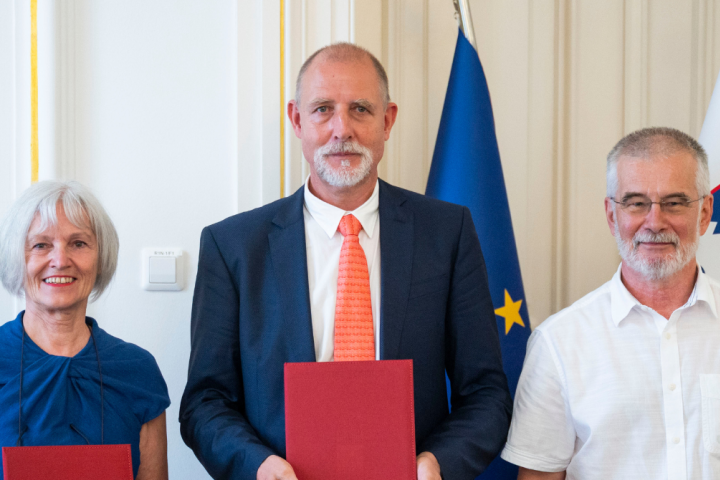
University Clinic Golnik becomes an associate member of the University of Ljubljana
Today, the University of Ljubljana (UL) and the University Clinic of Respiratory and Allergic Diseases Golnik signed an associate membership agreement, strengthening cooperation between higher education and healthcare institutions.
-

You're Never Too Old to Be Scammed Online – and Cybercriminals Know It
Older adults are increasingly facing online scams and cyber threats. Due to less experience and greater trust in others, they are often targeted by attackers. However, not all older internet users are equally vulnerable – their digital skills and needs vary greatly.
-
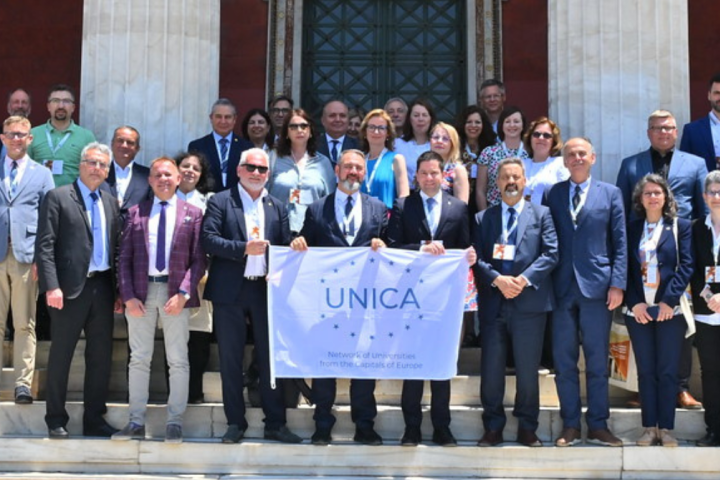
Prof. Dr Ksenija Vidmar Horvat becomes a member of the UNICA Steering Committee
At the UNICA General Assembly in Athens, Prof. Dr Ksenija Vidmar Horvat, Vice-Rector of the University of Ljubljana for Study and Student Affairs (UL), was elected to the UNICA Steering Committee, which brings together universities from major European cities. This appointment provides the UL with an important strategic position for interdisciplinary networking.
-
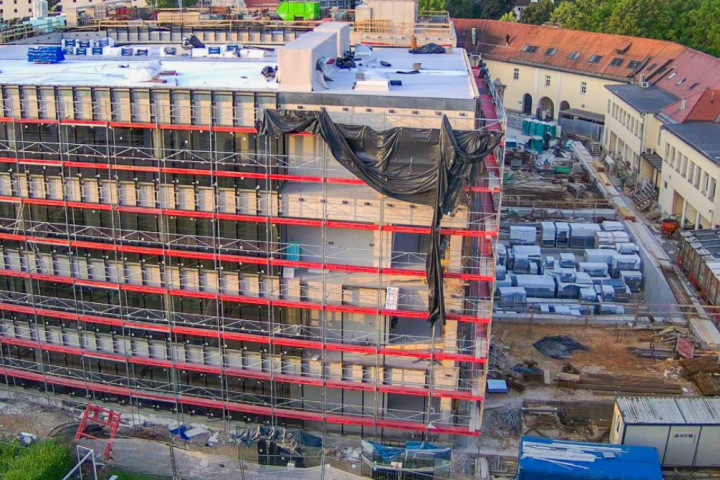
Progress of the construction of the Triple Campus of UL MF: Completion of the construction, start of the interior works
The Faculty of Medicine of the University of Ljubljana (UL MF) is building a modern campus at Vrazov Trg, which is set to be completed mid-2026 and will meet the growing spatial needs for studies, research and professional work. Work is progressing as planned, with the interior fit-out phase and the completion of construction on the south wing currently underway.
-
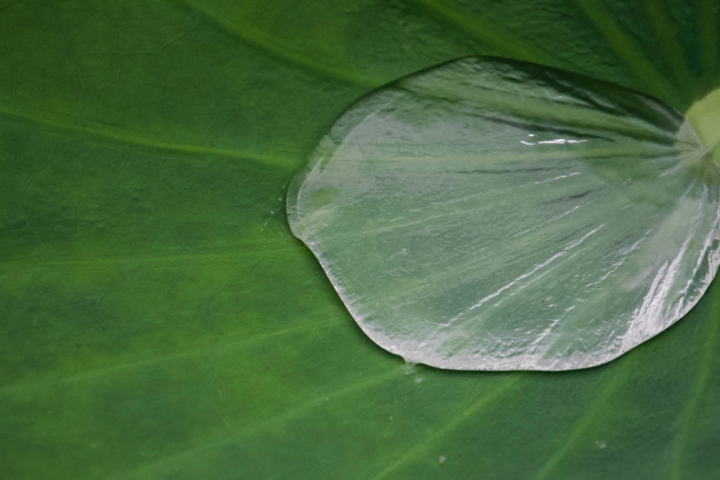
Can droplets reveal the pressure threshold of water-repellent surfaces?
Researchers from the Faculty of Mechanical Engineering at the University of Ljubljana developed a simple yet remarkably precise method that can determine, from a single drop of water, when superhydrophobic surfaces lose their water-repellent properties. This breakthrough will aid in the development of more durable water-repellent materials that can be used in industry, for example in cooling, self-cleaning, or corrosion protection.
-
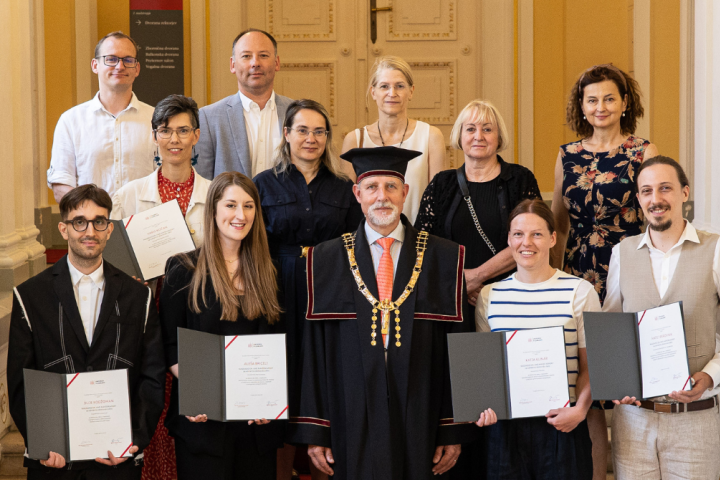
Dr Ana Mayer Kansky Awards bestowed for the third time at the UL
On Wednesday, 18 June 2025, the Dr Ana Mayer Kansky Awards for outstanding doctoral theses were awarded for the third time in the Assembly Hall at the Rector’s Office of the University of Ljubljana (UL). The awards were presented to Dr Matej Perovnik, Dr Faris Kočan, Dr Aleša Bricelj, Dr Duje Kodžoman, and Dr Katja Klinar. The award ceremony was held under the patronage of the President of the Republic of Slovenia, Nataša Pirc Musar.
-

University of Ljubljana achieves its highest QS ranking since 2015
The 22nd edition of the QS World University Rankings 2026, an international ranking of the world’s top universities, was released in June 2025. The University of Ljubljana (UL) was ranked in 535th place, moving even closer to the top 500. This year’s result represents UL’s best ranking for a decade. In the 2015 edition of the QS World University Rankings, it was ranked between 501st and 550th, while last year it placed 596th.
-
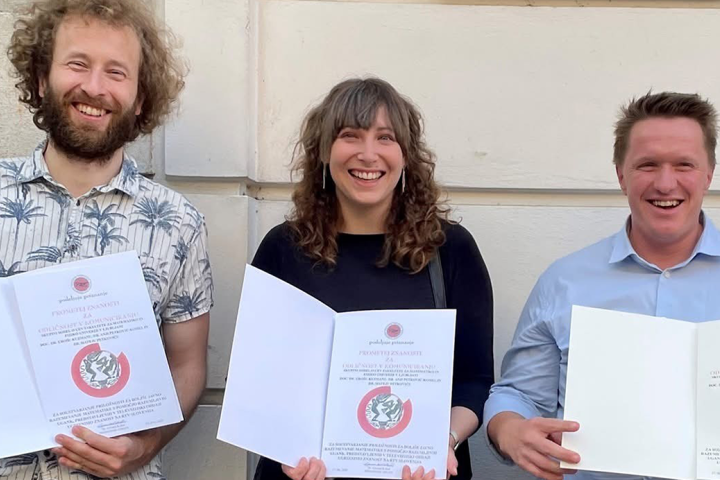
Three mathematicians from the UL FMF awarded the 2024 Prometheus of Science Awards
Uroš Kuzman, Anja Petković Komel and Matej Petković from the Faculty of Mathematics and Physics at the University of Ljubljana (UL FMF) are the recipients of the national Prometheus of Science Award for Excellence in Communication. Presented by the Slovenian Science Foundation, the award recognises their many years of work and contributions to the popular science programme Ugriznimo znanosti (Let’s Bite into Science) on RTV Slovenija.
-
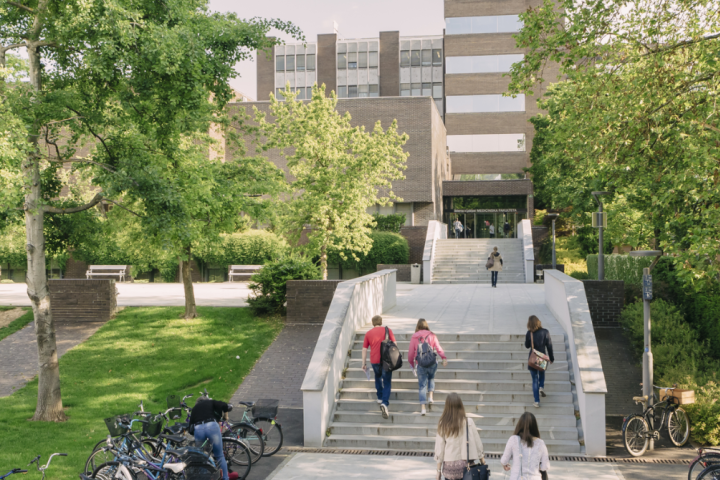
The Senate of the University of Ljubljana approved an increase in the number of places available at the Faculty of Medicine
At today’s regular session, the Senate of the University of Ljubljana (UL) approved the proposal from the Faculty of Medicine (UL MF) to increase the number of admission places to higher years of study for the academic year 2025/26. Twenty additional admission places will be offered for the integrated master's study programme in Medicine, and five additional places for the programme in Dental Medicine. These places are intended for citizens of the Republic of Slovenia and are subject to approval by the Ministry of Higher Education, Science and Innovation.
-

How to Build a Relationships with Sustainability-Oriented Consumers?
For a successful transition to a more sustainable society, we need empathetic, credible, and strategically consistent communication—one that addresses the consumer not only as a buyer but also as a socially responsible individual, embedded in relationships with others and with nature.
-
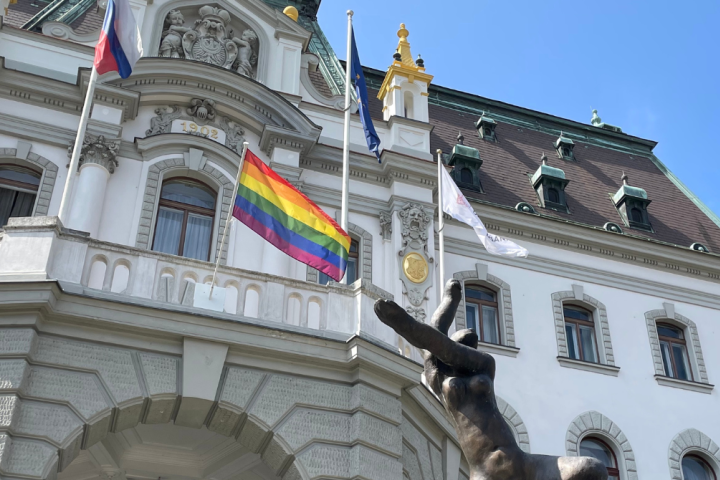
For a community based on the values of diversity, equality and equal opportunities for all
For Pride Month, the rainbow flag was once again raised above the entrance to the Rector's Office of the University of Ljubljana (UL). This gesture expresses our support for the LGBTIQ+ community and reaffirms our commitment to human rights, equality and inclusion for all individuals, regardless of sexual orientation, gender identity or gender expression.
-
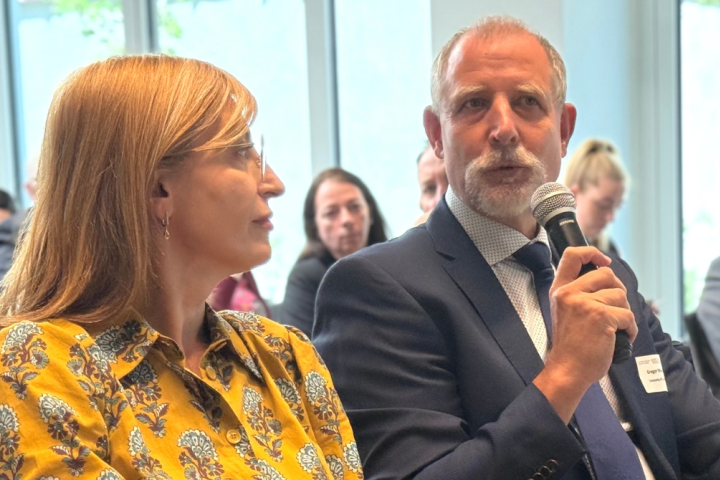
University of Ljubljana, Rectors' Forum of Southeast Europe and Western Balkans, and SBRA: Academic integration as a key factor for development
On Thursday, 12 June, the University of Ljubljana, in cooperation with the Brussels-based Slovenian Business and Research Association (SBRA) and the Rectors' Forum of Southeast Europe and Western Balkans, organised a consultation on academic integration in the Western Balkans, with a focus on the integration of candidate countries into the European Union. Ekaterina Zaharieva, European Commissioner for Startups, Research and Innovation, attended the event and was among the keynote speakers.
